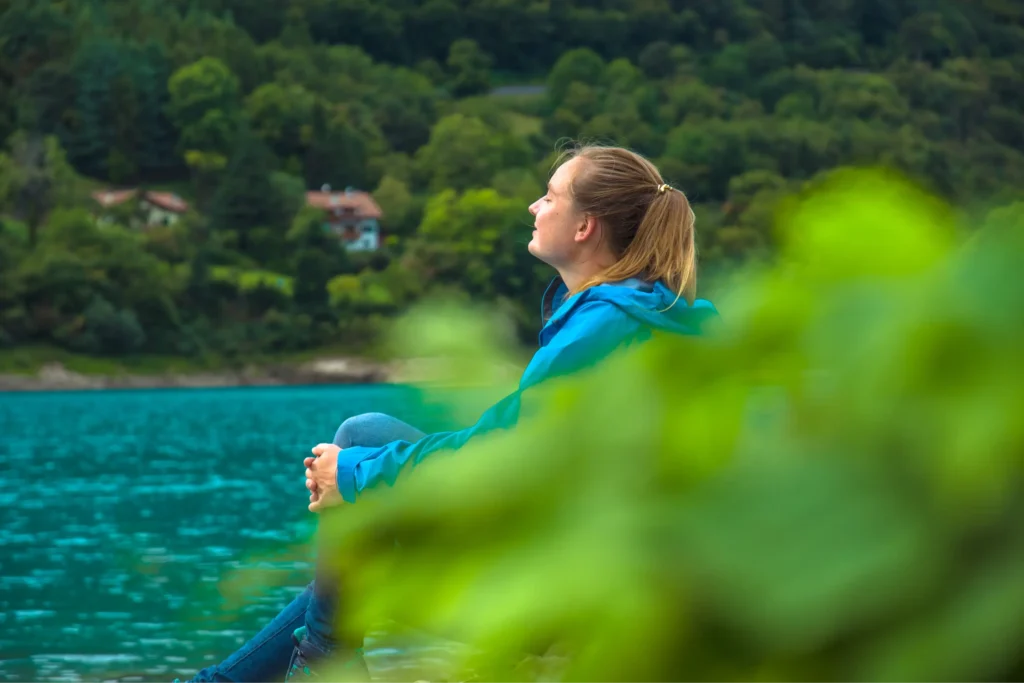Trends in Sustainable and Eco-Friendly Travel

The global travel industry is undergoing a major transformation as sustainability becomes a defining factor in how people explore the world.
Travelers today are more conscious of their environmental footprint, seeking experiences that align with ecological and ethical values.
This shift presents both a challenge and an opportunity for the tourism sector: to innovate, reduce impact, and create travel experiences that protect the planet while enriching local communities.
By embracing responsible practices and promoting transparency, the industry can ensure that travel remains both inspiring and sustainable for generations to come.
Table of Contents
Current Trends in Sustainable Travel
Regenerative Tourism
Sustainability is evolving into regenerative travel, where experiences actively restore ecosystems and empower local communities.
Many hotels now invest in coral restoration and reforestation, while countries such as Costa Rica and New Zealand embed these principles into tourism policy.
This approach reflects a deeper shift from minimizing harm to creating positive environmental and social outcomes.
Smart and AI-Enhanced Sustainability
Technology and data are transforming how the industry manages resources.
AI helps hotels monitor energy efficiency, optimize waste, and reduce emissions. Travel brands increasingly use machine learning to plan low-impact routes and personalize eco-friendly itineraries.
These innovations align with Travel SEO Agency’s focus on using AI and AEO to boost visibility for sustainable travel offerings.
Low-Carbon Mobility and Sustainable Fuels
Aviation is shifting toward sustainable aviation fuels (SAF), cutting lifecycle emissions by up to 80%, as reported by the World Travel & Tourism Council.
Electric rental fleets, cycling infrastructure, and high-speed rail projects across Europe are further reducing the carbon footprint of travel.
Meanwhile, booking platforms like Expedia and Google Travel now include carbon filters, helping travelers compare emissions before booking.

Verified and Transparent Stays
Modern travelers seek proof, not promises. Certifications like GSTC, EarthCheck, and Green Key are gaining traction — but credibility now depends on transparent annual reporting.
A 2025 analysis by Skift shows that travelers are four times more likely to book certified accommodations that clearly publish sustainability data.
Slow Travel and Local Immersion
Travelers are swapping fast itineraries for slow, immersive travel. Staying longer in one region reduces emissions and supports local economies. The UNWTO notes that extended stays cut CO₂ output by up to 40% per trip.
This trend pairs perfectly with regional SEO strategies like geo-targeted content, which highlight local experiences and encourage off-season travel.
Plastic-Free and Circular Hospitality
Hotels and airlines are phasing out single-use plastics and embracing circular economy systems — reusing materials, composting waste, and sourcing locally. Groups like Accor and Marriott plan to eliminate disposable plastics by 2030.
These initiatives prove that sustainable operations can align with profitability, innovation, and guest satisfaction.
Everyday Actions for Greener Travel

Sustainable travel starts with mindful choices. Stay in certified eco-lodges, use direct flights or trains to reduce emissions, and pack reusable essentials like bottles and cutlery.
Support local restaurants and artisans, tread lightly in natural areas, and get involved in community or conservation programs that give back to the destination.
For travel brands, sharing these practical steps in blogs or destination pages is a powerful way to inspire responsible travel — and an effective SEO tactic we regularly apply at Travel SEO Agency.
Destinations Leading the Way
Around the world, several destinations are redefining what sustainable travel means in practice. These countries combine environmental innovation, cultural preservation, and community well-being — setting new global standards for responsible tourism.
Costa Rica
- Recognized as a global pioneer in ecotourism and biodiversity protection, with over 25% of its land protected as national parks and reserves.
- Generates nearly 99% of its electricity from renewable sources like hydropower and geothermal energy.
- Encourages community-based tourism projects such as rainforest lodges and wildlife sanctuaries that reinvest visitor revenue into local conservation.
- Costa Rica is a global leader in sustainable tourism, combining luxury travel with reforestation and renewable-energy-driven conservation.
Slovenia
- Among Europe’s most sustainable destinations, with over 60% forest coverage and a strong national focus on low-impact tourism.
- Operates the Green Scheme of Slovenian Tourism, a certification program backed by the Global Sustainable Tourism Council.
- Its capital, Ljubljana, was named European Green Capital for its clean mobility, cycling infrastructure, and efficient waste management.
- Demonstrates how small nations can lead in climate resilience and sustainable visitor planning.
Bhutan
- Follows a “High-Value, Low-Impact” tourism policy that limits visitor numbers and funds community development through a daily sustainability fee.
- The policy supports reforestation, education, and rural infrastructure while keeping Bhutan one of the few carbon-negative countries in the world.
- Guided by its Gross National Happiness philosophy, Bhutan’s tourism framework integrates well-being with environmental stewardship.
- The country is considered to be a leader in balancing culture, conservation, and visitor experience.
New Zealand
- Promotes responsible travel through the nationwide Tiaki Promise, encouraging visitors to protect nature and respect local culture.
- Operates the Qualmark Sustainable Tourism Certification, ensuring tour operators meet strict environmental and social criteria.
- Focuses on regenerative tourism, prioritizing biodiversity restoration and partnerships with Māori communities.
Iceland
- Powered almost entirely by geothermal and hydropower energy, making it one of the cleanest economies in the world.
- Maintains a network of national parks with strict visitor management to preserve delicate ecosystems such as glaciers and volcanic areas.
- Promotes sustainable adventure travel with limits on group sizes and environmental guidelines for tour operators.
- Cited by the World Travel & Tourism Council as an example of effective climate-neutral tourism development.
Greenland
- Takes a proactive stance against overtourism through licensing systems favoring locally owned tour companies.
- Introduces visitor caps at fragile Arctic locations to protect wildlife and cultural heritage.
- Focuses on quality over quantity, aiming for slower, more meaningful tourism growth that benefits residents first.
- Praised in Le Monde for its forward-thinking sustainability strategy.
The Road Ahead
According to Business Research Insights, the global sustainable tourism market is on a strong growth trajectory, expected to expand from USD 3.1 billion in 2025 to USD 17.4 billion by 2035.
This surge reflects travelers’ rising preference for eco-conscious experiences and the industry’s increasing investment in renewable energy, waste reduction, and responsible hospitality.
The report highlights sustainability as one of the most profitable long-term strategies for travel businesses aiming to meet new environmental standards and consumer expectations.

Conclusion
Sustainability in travel is no longer optional — it’s the new foundation of global tourism.
By adopting regenerative practices, embracing technology, and telling authentic stories, the industry can protect the planet while inspiring travelers to explore it responsibly.
To position your brand at the forefront of this green revolution, partner with Travel SEO agency — where sustainable travel meets intelligent visibility.



